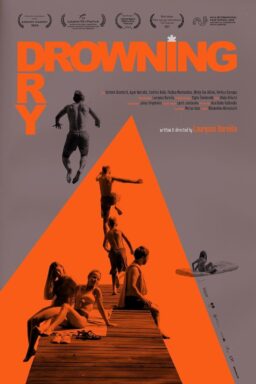 When I reviewed Mel Gibson‘s “Apocalypto” a few months ago, several readers brought up the point that when a filmmaker constantly uses extreme violence in his films, there surely must be something wrong about the director himself.
When I reviewed Mel Gibson‘s “Apocalypto” a few months ago, several readers brought up the point that when a filmmaker constantly uses extreme violence in his films, there surely must be something wrong about the director himself.
I don’t buy into that theory, but while watching Quentin Tarantino‘s films, which I mostly enjoy a lot, I have to admit I have a hard time disassociating my diagnosis of the filmmaker with his own work, especially “Pulp Fiction” which is clearly a film with an amazing understanding of violent criminals, the drug culture and the fine art of original cursing.
“Pulp Fiction” is not an easy film to describe. It’s sort of a gangster movie but with many subtle and not so subtle differences, enough to turn the genre on its head. You could say it is about rumors of foot massages, divine miracles, impromptu robberies, the very worst moments to go to the rest-room, fixed fights gone wrong, first dates gone right (too right and then subsequently really, really wrong), and so on. But those who have not seen it won’t be able to make much sense of this description. Maybe the best way to describe it is as a shot of adrenaline, not too different from the one it depicts on-screen — a visceral violent ride that amazingly, also happens to be full of very sweet and funny moments.

Much has been said about Tarantino and Avery’s script and how much they appear to have fallen in love with their words. But who ever said movie dialogue by itself shouldn’t be entertaining? Its sole function is not to take you from point A to point B in a film? Yes, while listening to the lines in “Pulp Fiction” it instantly becomes clear to us that the writers enjoyed writing them, the actors enjoyed saying them and sometimes they may even feel somewhat superfluous to the scene (female pot-bellies, blueberry pancakes and just about everything that woman cab-driver says), but who cares? Even with ordinary movie dialogue, the entertainment level in “Pulp Fiction” would still be higher than in most features.
Notice also the many instances when the script itself builds up to something very small but great, like the scene between Tarantino, Travolta and Jackson discussing the quality of Jimmy’s coffee, then the Wolf arriving and , knowing nothing of this discussion, tastes the fine beverage and something as apparently insignificant as his clear appreciation of it marks a wonderful little payoff, a very small moment which I have to say, is my very favorite moment in the film.

Tarantino selects the songs on his film’s soundtracks in a way that’s very reminiscent of Scorsese: he goes with what he likes and feels right, regardless of whether their lyrics have any relation to what’s actually occurring on screen. Yet he makes it impossible for the audience to later on disassociate them; the scene and the song become one entity and even those tunes we’ve know from long before will now forever feel as though they originated from “Pulp Fiction”. The songs seem to come from everywhere and the characters sing to them, dance to them, hum to them. It’s almost as if the actors use them as an additional accessory to bring even more energy to their performances and here again, they seem to be enjoying themselves in the process.
There are Great Films and those which somehow manage to become part of pop culture and street language and “Pulp Fiction” fits both categories You won’t find many movie lovers who don’t know the answer to how you say “Quarter Pounder with Cheese” in French. Of many who don’t know the source of such terms as “Big Kahuna Burger,” “Zed is dead,” “the Five Dollar Milkshake” (though this figure doesn’t sound nearly as impressive 16 years later) and that most distinctive one engraved in a wallet (of which I recently found 62 similar items available on E-bay).

Of course, any mysteries or loose ends in a legendary film like this were bound to mess with audiences — who figured them as hidden, dark messages. For example, the film’s MacGuffin (the contents of the portfolio and the combination number). On a curious note, next time you watch the “Pulp Fiction” on DVD, be sure to pay close attention to Uma Thurman’s description of her TV pilot (“Foxy Force Five”), which sounds remarkably similar to that of the plot of one of Tarantino’s later films, “Kill Bill, Volume 1“. Also, don’t miss the features on Disc 2 which provides an excellent commentary about “the Tarantino Generation” by two renowned film critics whom it’s wonderful to be able to see in a screen larger than that of YouTube, for the first time in many years.

All of this praise doesn’t mean for a second that “Pulp Fiction” is a film for everybody. Heck, I’m not even sure it is entirely my cup of tea as there are plenty of moments in it that make me shudder. Even after countless repeated viewings there are scenes in which I admit the DVD’s remote control comes in very handy but, regardless of this, it’s clear that even after all these years and countless imitations, watching the film yet again makes us realize we are witnessing film-making at its most innovative, confident and very best.
As for Tarantino himself, I doubt he’ll direct a new version of “The Little Princess” but it would be interesting if one of these days he should tackle an altogether different genre, he clearly has the talent to do just about anything.
Just about every Tarantino work has as a common denominator some of the most disturbed people in movies, such as the Michael Madsen character who merrily cuts off the ear of the policemen in “Reservoir Dogs“, the sado-masochists in “Pulp Fiction,” the Ninja in school-girl attire in “Kill Bill, Volume 1,” the Nazi hunters in “Inglourious Basterds“, and so on.
On the other hand, let’s not forget that the majority of the people who inhabit “Pulp Fiction” are downright lovable: Honey Bunny and Ringo might be a pair of ruthless muggers but they are also affectionate and caring towards each other. Willis’ Butch may have once wished the death of his arch-enemy at all costs, but a few minutes later he can’t bear the thought of leaving him to his fate in that dungeon of horror.
The Wolf may be a life-criminal but who in his right mind wouldn’t want to have somebody as efficient and cool-headed in their corner during times of trouble? Vincent Vega and Jules may be a couple of unforgiving hit-men who view a human being that they blew-up mainly in terms of an inconvenient mess, but the first is also a most sensitive and thoughtful one, the second remarkably reflecting, mystic who will go through extreme lengths to counsel and support a woman who just happens to be pointing a gun at him. Both also happen to be excellent friends who are constantly making sure their lives do not cross the line and not just because they are well aware the other guy is armed but mainly because they seem to truly value each other’s friendship. At any rate, for all I know Tarantino might very well be a Teddy Bear himself but it’s hard for me to comprehend how anybody writing about these kinds characters could be as insightful if starting from scratch.












